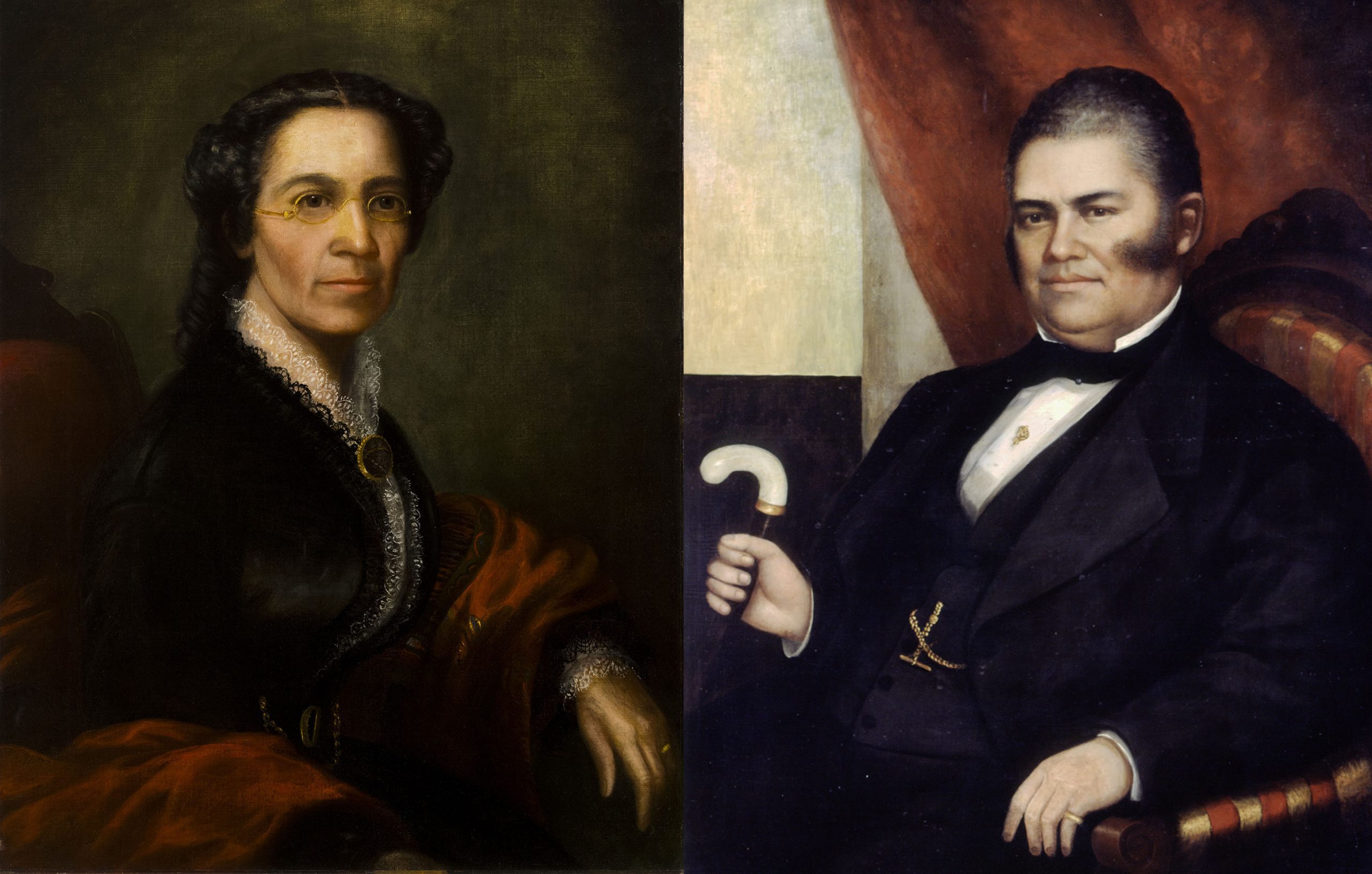 From left: portrait of Mary Richardson Jones, c. 1865. Aaron E. Darling, painter. CHM, ICHi-062628. Portrait of John Jones, c. 1865. Aaron E. Darling, painter. CHM, ICHi-062485.
From left: portrait of Mary Richardson Jones, c. 1865. Aaron E. Darling, painter. CHM, ICHi-062628. Portrait of John Jones, c. 1865. Aaron E. Darling, painter. CHM, ICHi-062485.
In February 1853, a new law took effect that prohibited African Americans from settling in Illinois. The law was spearheaded by Democrat John A. Logan and passed by Illinois’s all-white legislature. This exclusion of Black Americans was one of the most egregious stipulations in a series of anti-Black laws passed in Illinois that relegated free African Americans to second-class citizenship. Under these laws, which came to be known as Black Laws, Illinoisans of African descent could not vote, testify against white people in court, or bear arms, and were required to register with local authorities.
The law prohibited bringing enslaved persons into the state and forbid any African American from emigrating to or residing in Illinois longer than ten days. Should a white resident bring a complaint against an African American resident, the latter could be fined between $50 and $500. If the accused failed to pay the fine, they would be jailed and sold at a public auction to recoup the cost. Moreover, if the Black resident paid the fine, the white accuser received half the sum, incentivizing white civilian policing of African Americans.
This 1853 law provoked widespread outrage among both Black and white Illinoisans. John Jones became a prominent Black organizer and leader in the fight for Black residents to live and thrive in their homes. In addition to organizing against the Black Laws, Black residents flouted the fugitive slave law through Underground Railroad operations, battled for abolition, and developed community institutions for education, religion, and benevolence. As Jones noted in his scrapbook, “Union is strength and… concert is power.”
Learn more about the first generation of Black Chicagoans and their activism in our two-part Google Arts and Culture story: Concert is Power.